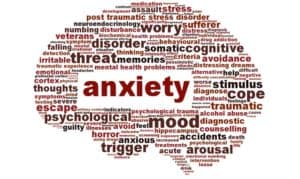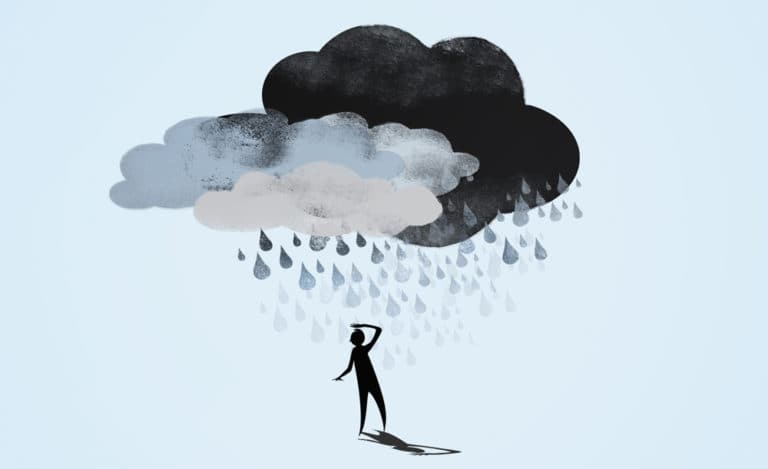"I want to feel better and stop feeling like this"
Counselling for Anxiety, Depression and Stress
I have worked as an “Approved Therapist” registered with Anxiety UK which has been working since 1970 to provide help across a wide range of anxiety conditions. I hold extensive experience of providing counselling for anxiety, depression and stress. This including where clients experience an increase in suicidal thoughts.
Anxiety disorders are very common, with more than 1 in 10 people likely to have a ‘disabling anxiety disorder’ at some stage in their life. The OECD concluded that "the prevalence of anxiety in early 2020 was double or more than double that observed in previous years" across many of its member countries. This included the UK and the US.
Depression has been forecast by the World Health Organisation to be the second leading contributor to the global burden of disease by 2020.
Research has shown that anxiety, depression and stress respond well to Counselling, Cognitive Behavioural Therapy (CBT), Acceptance and Commitment Therapy (ACT) and Psychotherapy. I use all of these approaches along with other ways of working within my practice.
ANXIETY
Essentially, anxiety is the body's natural response to prepare us for those actions necessary to remain safe from a threatening situation. The threat may be real, predicted or imagined.
The response ranges in intensity from a vague sense of unease through to an all-consuming feeling of worry or dread. When the feeling of anxiety is disproportionate to its source, it can have a significant and disabling impact on your ability to function.
Anxiety shows itself in many different forms, some of the most common being:
- Generalised anxiety disorder (GAD)
- Social anxiety disorder
- Panic Attacks
- Phobias
- Stress
- Health Anxiety
- Post-Traumatic Stress Disorder (PTSD)
- Boarding School Syndrome
- Separation Anxiety
- Compulsions (OCD)
- Hoarding

I have considerable experience of working with anxiety and stress. Due to the diverse ways in how anxiety exhibits, my work with you will use a wide range of techniques, skills and therapies. These may include Counselling, Psychotherapy, Mindfulness, Cognitive Behavioural Therapy (CBT), Acceptance & Commitment Therapy (ACT) and Brief Solution Focused Therapy.
DEPRESSION
Many people might refer to themselves as feeling depressed’. Fluctuations in mood and feeling sad or blue are perfectly normal. Clinical or major depression is very different, both in terms of duration and severity of mood disturbance. It can have a devastating impact on people’s day to day life, and the symptoms vary from person to person and may include:
- Depressed mood (characterised by sadness, emptiness or hopelessness)
- Diminished interest or pleasure in all or almost all activities
- Significant weight loss (when not dieting) or weight gain
- Inability to sleep or oversleeping
- Agitation (restlessness and fidgeting)
- Fatigue or loss of energy
- Feelings of worthlessness or inappropriate guilt
- Diminished ability to think or concentrate
- Recurrent thoughts of death or suicidal thoughts

Depression can feel overwhelming, and often seems to appear out of nowhere. This can make you feel completely helpless. In order to overcome or cope with depression, I use Talking therapy along with Cognitive Behavioural Therapy (CBT). I often incorporate other types of therapy, particularly where the depression has been long term. The aim of our work is to help you understand why you are feeling the way you do, and to discover ways in which you can change how you feel.
Ways In Which Depression is Experienced
There are wide ranging symptoms caused by a number of different, but often overlapping causes. These states can leave you feeling depleted and exhausted.
- Event Driven, where your mood is adversely affected following a negative, or series of negative events.
- Mindset Driven, looking for patterns and evidence of what is going wrong which reinforces a negative emotional state. You tend to focus on problems and often spend time ruminating, where you mind goes over and over the same events, and you feel trapped in a downward spiral.
- Trauma Induced, following events which have not been processed and are locked in your body. Symptoms include lack of sleep, flashbacks, being on high alert, extreme sadness, numbness, loss of appetite, loss of drive and social withdrawal.
- Clinical, including Bipolar, Seasonal Affected Disorder, Perinatal, Depressive Psychosis, Premenstrual Dysphoric Disorder, the effect of Hormonal or Developmental changes.
From the list above, it is clear that depression, and the causes of depression can be complex. Different types of depression require different approaches in therapy. For instance, we might look at your existing beliefs and behaviours, and look to replace them with more useful ones. This in turn might result in a change in outlook which positively affects mood and feelings. I use Acceptance and Commitment Therapy (ACT). This type of therapy helps you find acceptance of those things that cannot be changed. "Behavioural Activation" can be used take you towards a valued and meaningful life.
You don't have to suffer in silence with your depression. Neither are you alone in suffering from the effects of it. Over 300 million people worldwide are estimated to be affected. Together we can explore how your depression is affecting you, and we will work to develop new compassionate ways of thinking, feeling and behaving.

